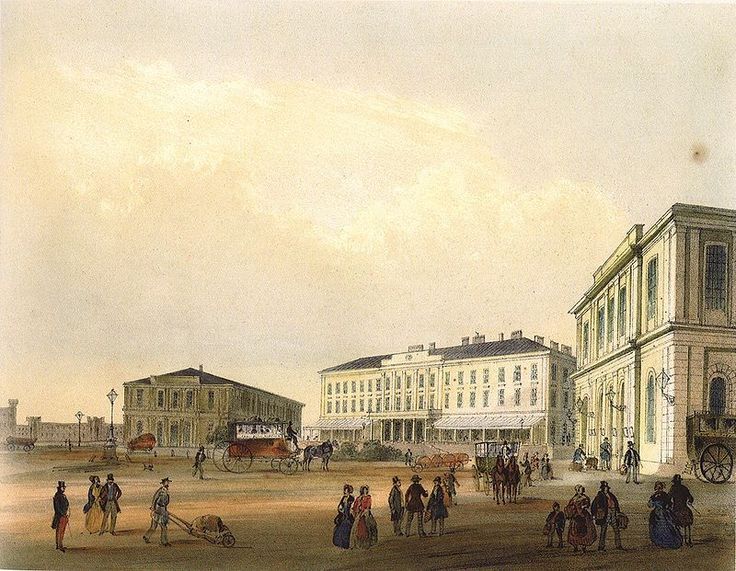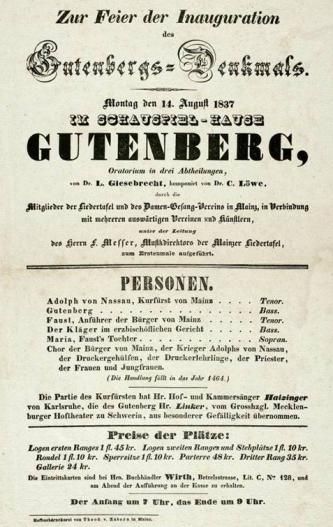Loewe's Travels
Although these trips almost always had to take place during the holiday season and many representatives of the respective “society” were on vacation themselves, he achieved great reputation as a composer, singer and pianist. Private performances and meetings with well-known musicians of his time such as Mendelssohn and Schumann, conversations with poets like Rückert, with like-minded people like e. g. Goethe's grandson Walther and the painter Hildebrandt inspired his musical work.
Of particular note are his trips to Vienna (1844), where he found great recognition as the “Schubert of the North” and to London (1847), where he shone in front of Queen Victoria and Prince Albert.
His later trips (1851 to Norway; suggestions for the ballad “Odin's Ride on the Sea”) and 1857 to Le Havre on the Channel coast were of a private nature.
Carl Loewe then lived quietly and withdrawn with his family in Stettin; the time of his great external successes was over.
In 1835 he traveled via Berlin, Dresden and Leipzig to Mainz to perform his vocal oratorio The Brazen Serpent, which was repeated the next day after the first performance due to the great response. The local song group then made Loewe an honorary member. Loewe gives smaller ballad evenings in Dresden and Leipzig. On the way back he led the last rehearsals of his great oratorio The Apostles of Philippi in Jena and met his old student friend Keferstein (author of the novel “König Mys von Fidibus” – the original can be seen in the Carl Loewe Museum). In Weimar he paid his respects to the Grand Duchess Maria Pavlovna and met Goethe's grandson Walther, who later became his student, in the Goethe house.

In 1837 - at the height of his popularity - he traveled to Mainz to a large singing festival on the occasion of the unveiling of the Johann Gutenberg monument. 14,000 guests came to Mainz for this occasion. The commissioned work he composed - the oratorio Gutenberg (a first printed sheet music can be seen in the Carl Loewe Museum) was performed on August 14th in the presence of Prince Wilhelm, later the first Emperor of the German Empire. A few days later a Loewe concert took place in front of a select audience.
In 1844 Loewe traveled to Vienna. For the first time he used a section of the new Magdeburg-Köthen-Halle-Leipzig railway, which ran close to Löbejün. Through the support of Walther von Goethe, Loewe was able to make some contacts and perform his ballads at private invitations. Word of his speaking skills spread, and he received further opportunities for concerts and discussions with music publishers.
At the invitation of the English royal court, Carl Loewe had the opportunity to perform his compositions in front of Queen Victoria, Prince Albert and many other members and guests of the royal family. Unfortunately, Loewe became hoarse upon his arrival in May 1847, so that he had to improvise at his first appearance and could only perform a few ballads and the Gypsy Sonata on the piano.
When he was invited again to Buckingham Palace at the beginning of June, he was back to his voice and was able to shine in his usual way. Singing and playing the piano impressed the royal couple. His daughter Helene later reported that it was known from her father's oral communications that “the Prince Consort followed his ballad recital with lively interest and that he had turned the music for him with his own hands. Many large English families sought to bring Loewe into their circles after his reputation in London became established. But his official duties called him back home.”



